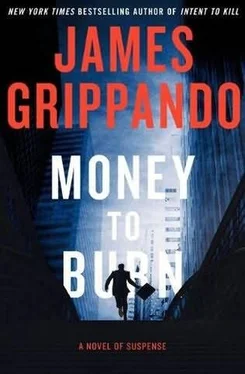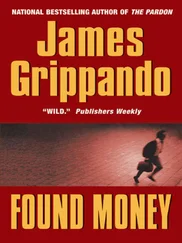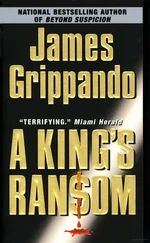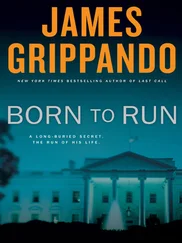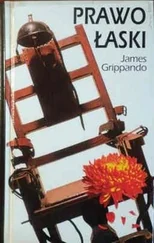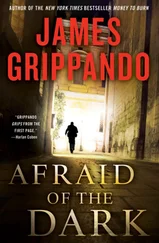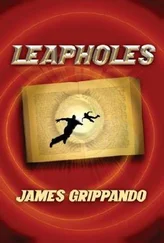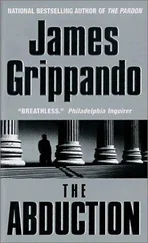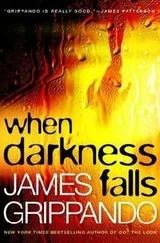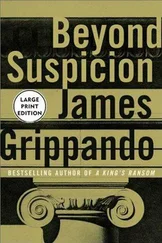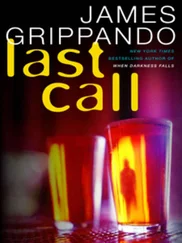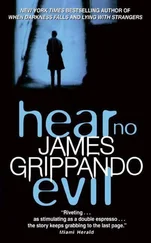I would never forget him.
“Another beautiful day in paradise,” the man said.
It was a warm day for early November, and I was seated near the open French doors at the front of the restaurant. I looked up from the newspaper I’d been reading. A quick glance around the restaurant confirmed that there were plenty of open booths and tables-no apparent need to share with a stranger. That was strange enough, but it was his words that had taken me aback. Another beautiful day in paradise. That was what Papa always said as he headed out of the house for his morning walk.
“Do I know you?”
“You tell me,” he said.
I looked at him carefully. He had piercing ebony eyes, and the dark complexion fit the hint of an accent I detected. It sounded Indian, though I knew from my business travels that it was difficult to generalize about a country that had twenty-nine different languages that counted more than a million native speakers. In any event, it was his appearance more than his voice that defined him. His build was that of a weight-lifting fanatic-someone who worked out not for the health benefits, but because he liked to intimidate. His hair was hidden beneath a black knit beanie, but the sideburn on the left side of his face was longer and thicker than the one on the right. A broad scar or some other deformity started at the right earlobe, continued under his jawbone, and disappeared somewhere beneath his black turtleneck sweater.
“I’ve never seen you before,” I said.
He reached inside his coat pocket, pulled out his wallet, and removed a hundred-dollar bill. He flattened it out on the table, rather ceremoniously removing every last wrinkle. Then he held it over the glass votive on the table, not actually putting it in the candle’s flame, but it was dangerously close.
“Watch,” he said.
My gaze fixed on the crisp bill resting atop the glowing votive. A black circle emerged beside the image of Benjamin Franklin as the candle scorched the underside. A wisp of smoke appeared, and suddenly the yellow flame poked through the watermark. In another second, the bill was burning like dry tinder.
“It’s a crime to burn money,” he said, holding the flaming bill.
“Excuse me?”
“I just committed a crime,” he said. “Burning money is a federal offense.”
I watched him, not sure what to do, wondering if this guy was playing with a full deck.
“Are you going to turn me in?” he asked.
“I think you should leave.”
“But I need to know,” he said. “Are you going to turn me in?”
“Just beat it. I’m not going to turn you in.”
“That’s good,” he said, rising. Then he tossed the remnants of the burned hundred-dollar bill on the table and said, “That makes you part of the cover-up.”
I watched with curiosity as he turned and walked away, leaving me alone with the ashes.
WALL STREET.
Midtown had been a comfortable home for Saxton Silvers since the destruction of its offices on 9/11, but actually standing before the New York Stock Exchange building and seeing the huge American flag draped over its massive stone columns never failed to get my pulse pounding. I was in a hurry, but I stopped for a moment to take it all in. History oozing from a concrete jungle of tall towers on narrow streets. Floor traders hustling back from lunch or the gym for the end-of-day frenzy. People everywhere, rushing with purpose.
And a seven-foot bear in a boxing ring.
“What the hell?” I said to myself.
The Exchange was actually on Broad Street, which was closed to cars. FNN had re-created the Bell Ringer set outside the building, complete with the signature boxing ring. Waiting “in the other corner” was a man dressed up like that lovable bear from Jungle Book who made “The Bare Necessities” one of Disney’s most hummable tunes. Bell was still inside the building, but his plan clearly was to don his boxing gloves and beat the snot out of that poor sloth in the road-show version of Bell Ringer.
“You got a cigarette?” the bear asked as I passed.
Immediately I suspected a setup-a test question planted by FNN to see if the founder of Saxton Silvers’ Green Division and chief proponent of investment in socially responsible companies supported Big Tobacco with his own nasty personal habit. I was officially paranoid.
“Sorry, dude,” I said.
Security at the NYSE was tight, but I had clearance. I was emptying my pockets at the metal detector when my cell rang. I stepped out of line to take the call. It was Eric.
“Change of plans,” he said. “We cut a deal with Bell.”
“A deal?”
“He’s been killing us for refusing to address the rumors, but if senior management responds, it only legitimizes them. Bell agreed to back off if we just give him someone to talk to.”
“Like who?”
“You.”
“Me?”
A minute ago I wanted to take it to Bell. But now I was afraid of what I might say to him.
“Listen carefully,” said Eric. “You are not the firm’s spokes-person on the subprime write-downs. But this nonsense about our former investment advisor of the year dumping his stock has to be stopped. Here’s the plan: You go on the air with Bell, you tell him about the identity theft, and you make it clear that you’re still bullish on Saxton Silvers. That’s it. You got it?”
“Yeah.”
“Michael, I need you to knock this out of the park. Understand?”
“Totally,” I said.
“Good. Just keep it short. I’ll be watching.”
I made it through security as quickly as I could, and fifteen minutes later I walked onto the trading floor. The “Big Board” is a truly grand space, and even folks who know nothing about the market are impressed by the marble walls rising up seventy-two feet to an ornate gilt ceiling, two more dramatic walls of windows, and the famous skylight through which many a devastated trader has looked up to the heavens and asked, “Why me?” Most trading was done away from the floor these days, but the NYSE still did some of it the old-fashioned way, with traders gathering around posts to buy or sell in an open outcry auction. Even with the rise of electronic trading, it remains an icon of American capitalism, the source of countless images of despondent traders, palms to forehead, personifying the pain and tumult of Wall Street’s slides.
I walked through a section of the floor known as “Jurassic Park,” a place where older traders, many of whom started out as runners, rested and reminisced about that one golden year-they all claimed to have had one-in which they raked in a million bucks in commissions. I was headed for “Rodeo Drive,” the corridor of elite trading posts for firms like Saxton Silvers leading up to the famed NYSE bell.
“Mr. Cantella?” a woman said, catching up to me.
I stopped, turned, and saw her FNN credentials hanging around her neck.
“You’re on in five minutes,” she said. “Mr. Bell told me to do your makeup.”
I considered it, then reminded myself that my grandparents were in town. Papa had grown up on the south side of Chicago, stood in bread lines at age nine, and fought with the fair-haired kids in the neighborhood who had a problem with the fact that little Vincenzo’s first and last name ended in a vowel. He just wouldn’t understand makeup on his grandson.
“I’ll pass this time,” I said.
“Suit your shiny self.”
Say that three times fast, Papa would have said. I just didn’t have his gift for small talk-though no one could compete with the man who had managed to be on a first-name basis with every checkout girl at Publix a week after moving to Florida.
“Chuck’s waiting,” said Little Miss Anti-Shine. “I’ll take you to him.”
Читать дальше
